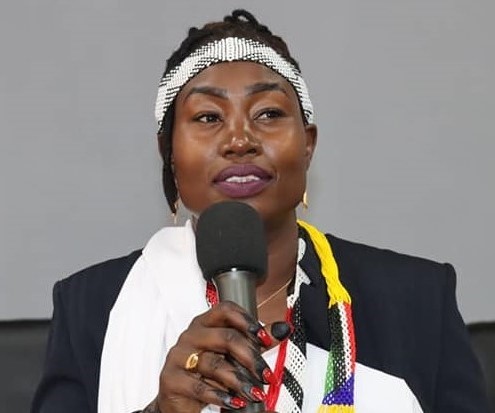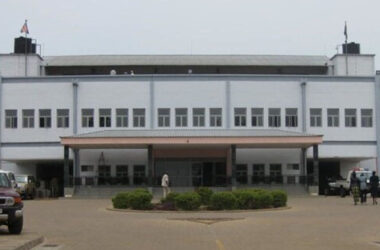By Kei Emmanuel Duku
As South Sudan strives to reduce the spread and infections of hepatitis by 2030, new data from the National Ministry of Health reveals that the Central and Eastern Equatoria states are leading the country in reported cases of hepatitis B and C.
Conversely, Pibor and Ruweng administrative areas have the lowest rates of hepatitis testing and positivity.
There are five main types of viral hepatitis – A, B, C, D, and E. Hepatitis A and E are typically caused by consuming contaminated food or water, while hepatitis B, C, and D can be transmitted at birth from an infected mother or through exposure to infected bodily fluids, blood, or medical equipment.
Dr. Agai K. Akec attributed the high positivity rate in the Central and East Equatorial State is due to frequent medical checkups at the state level.
In 2022, out of 47,041 patients tested for Hepatitis, 5,017 were positive, resulting in a positivity rate of 10.5%.
In 2023, about 5,942 out of 59,302 tested positive, yielding a positivity rate of 10%. From January to June 2024, more than 35,000 patients were tested, with 3,000 showing positive symptoms, resulting in a positivity rate of 8.6%, according to the data from the Ministry of Health.
“This data is specifically for hepatitis B, but in general, the positivity rates for both hepatitis B and C stand at 10% and 9% respectively, putting South Sudan on the World Health Organization’s ‘red flag’ checklist,” said Dr. Agai K. Akec, who provided an overview of the hepatitis situation during World Hepatitis Day celebrations at Juba Teaching Hospital.
Nationwide, the infection rates show Eastern Equatoria leading with 705 reported hepatitis B cases in 2022.
He said patients diagnosed with hepatitis in South Sudan face numerous challenges, including stigmatization, limited funding, unskilled healthcare workers, and a lack of medical diagnostic equipment.
Dr. Akec urged patients to seek early treatment by testing for the virus before vaccinating and treating.
Meanwhile, MSF-Swiss Representative reported that MSF has handled 10,000 cases of Hepatitis in Old Fangak, Abyei, Bentiu, and other areas across the country.
Additionally, over 100,000 people in Old Fangak and Abyei Administrative areas have been vaccinated.
According to the MSF representative, validating the Hepatitis B virus under the national immunization vaccination strategy will help to curb the spread of the virus.
“In these areas, Hepatitis B has become endemic, and we need robust actions to combat this disease in 2030. MSF has already estimated around 15,000 children across maternal health services, and once these children are vaccinated, it will significantly reduce the spread and contribute to a great public health goal,” she said adding that early vaccination for Hepatitis B will help reduce Mother-Child Transmission.
Dr. Bino Andrea, a specialist Hepatologist at Juba Teaching Hospital said acute infection caused by Hepatitis B results in symptoms such as jaundice (yellowing of the skin and eyes), dark urine, extreme fatigue, nausea, vomiting, and abdominal pain.
He noted that late treatment of hepatitis B and C may result in fatality.
“One of the most challenging aspects is that people seek treatment when it is already too late, making it difficult for us to save lives,” said.
The World Health Organization (WHO) representative, Dr. Mutale Nsakashalo, stated that hepatitis remains a significant public health threat in South Sudan.
In 2022, 65 million people were infected with hepatitis in sub-Saharan Africa, and new global data reveals that over 200 million people live with hepatitis B or C, with one-quarter of them in Africa.
Dr. Nsakashalo highlighted that 70% of the new infections, totalling 4.3 million global infections, are found in Africa.
She said these infections are primarily caused by low coverage of child vaccination, poor prevention measures, and low uptake of Hepatitis B and C doses.
Hepatitis B and C are estimated to affect over 7 million patients in Africa, leading to liver cancer and other related diseases with high mortality rates on the continent.
She said most patients suffering from Hepatitis B and C do not have access to comprehensive treatment, with only 17% of patients in Africa having access to hepatitis treatment, adding that the coverage of child vaccination in Africa is at 74%, which is the lowest in the world
“Less than 2% of the population affected by the virus is unaware of their status, and less than 1% access effective treatment,” said Dr. Nsakashalo.
She urged the government to embrace new technologies and introduce all forms of hepatitis B and C vaccines to reduce new infections, in addition to implementing blood safety screening.
In response, National Minister of Health, Yolanda Awel Deng, said the government will open additional testing and treatment centers in Wau to complement the Juba Teaching Hospital.
This, she said, will help reduce the cost and burden for patients who currently have to travel to Juba for treatment.
“Today we were supposed to launch the Hepatitis Specialized Centre here in JTH but we can’t not because it is not yet fully equipped however once it is opened we will open another one in Wau Teaching Hospital and we reduce the burden on the families and patients.”
Yolanda added that once opened patients will be able to access healthcare services like screening, consoling, and health education, vaccination for negatively tested clients, treatment and care for positively tested patients.
She further said it’s important to vaccinate after testing because it will minimize reintroduction of other viruses into the body.



